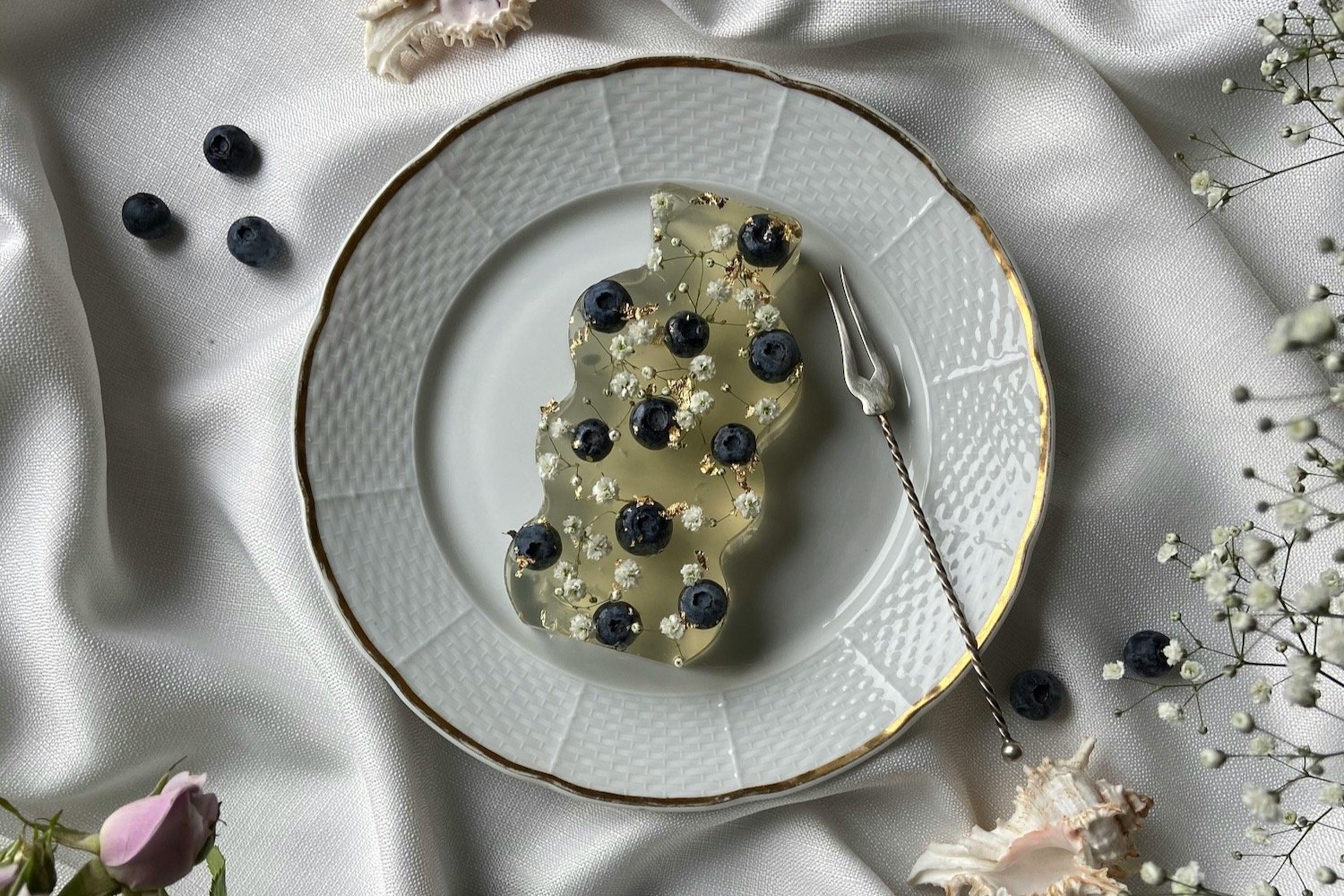These 3 Healthy Foods Were Keeping Me Overweight
This isn’t an article about dieting. It’s an article about knowledge.
by Audie Metcalf
I had been walking on this earth for 46 years thinking that because olive oil is “healthy” I don’t really have to think about it all that much, except of course that it’s superior to seed oils.
God forbid.
And so I dutifully drowned my salads with olive oil, finished most (all?) soups with a hefty drizzle (glug?), and made weekly batches of hummus, where the ratio of olive oil to garbanzo bean hovered around 60/40 on a good day. I won’t even tell you the ratio for my pesto. Olive oil can reduce inflammation, prevent strokes, and can fight Alzheimer’s.
And we mustn’t forget about avocados! Nature’s mayo, one might even say.
And it must be said that avocados are a perfect food. Perhaps not quite as delicious as sour cream (aka the most delicious food on earth) but they’re really up there. Mashed avocado on Ezekiel toast with a squeeze of lemon, Malden salt, and red pepper flakes? A nirvana of a breakfast. A mound of creamy tuna salad scooped into half an avocado and drizzled with a thick balsamic glaze? An unbeatable lunch—loads of protein, and can even lower your risk of heart disease.
And shall we discuss the love affair between peanut butter and sliced apple? If there has ever been a more enduring power couple, I’ve not heard of it. The crunchy, the creamy, the coating of the mouth. A snack for the ages; bursting with fiber, healthy fats, good for your gut, and wildly satiating.
I think I’ve made it crystal clear that these foods are healthy. They’re good for the body and the brain—and what a bonus that they’re all monumentally delicious.
But.
But.
Just because something is healthy doesn’t mean it can’t completely disrupt your goals. Those glugs and avocado boats and haphazardly scooped peanut butter snacks were adding up to hundreds, yes hundreds of calories a day.
Yes. I’m talking about calories.
Knowledge about calories can mean you have the power to reduce your own blood pressure, and therefore minimize your risk for heart disease and stroke. You know how I know that?
Because I did it.
Last year, I was diagnosed with a stomach ulcer after 35 years of pouring 4 Advil down my gullet every four hours for four days every month to combat my hideously painful “menses” as my grandmother used to say, and I had to dramatically change my diet in order for my stomach to heal itself. I was told to cut out all acid, caffeine, fats, fried food, alcohol, and red meat. Unsurprisingly, I lost a lot of weight. During this time, I never stepped on a scale because the 80s and 90s really ravaged our ability to decouple our self-worth from our weight, but let’s just say I did have to purchase an entirely new wardrobe. And so, once I started introducing those verboten foods back into my life, I used the (unbearably painful) ulcer debacle as a nice jumping off point to turn something rotten into something meaningful.
And so I started counting calories.
Not even in a diety way. Just in a curious way.
I used a food scale, I entered every morsel of food into My Fitness Pal, I drank my bodyweight in water, I tracked my fucking macros, I ate 140 grams of protein every single day.
And I had two huge realizations that came from all of this newly learned behavior, and both of them were huge enough that they prompted me to write this very article you’re reading. And here they are:
1. Losing and maintaining a lower weight than your body naturally wants to be over the age of 40 is unbelievably difficult.
2. If you’re someone who doesn’t eat a bunch of fast food or drink full fat Coke or have chips in the cupboard, it can be crazy-making to look down at your “nourish bowl” every day for lunch and wonder why you’re stuck at a weight you’re uncomfortable with. And for me, it was because i was just eating too many calories. And it didn’t matter if those calories were coming from Twinkies or avocados, when I was eating more calories than I was burning, I was overweight. And for me, so many of those calories were lurking in the healthiest foods on earth.
I know you’re mad. And also maybe kind of…happy? Happy to hear that his is the reason you feel stuck and powerless even though you’re making so many “healthy” choices every day?
I am risking an avalanche of angry DMs about “promoting diet culture” to write this but I thought it was too important not to share, as someone who has loved to cook fresh, healthy food my entire life—mostly big, bountiful salads—and has never had many packaged snacks or cookies or chips in my house. I have always eaten healthy food—I was just eating too much of it.
I fear you will be like: is this stranger on the internet really telling me avocados are making me fat? And no. This stranger on the internet is not telling you that. But this stranger on the internet is saying that we’ve been sold so many over-corrections recently to make up for what was admittedly a time of highly damaging body-scrutiny and glorification of visibly sharp hipbones and Snackwells as “nutrition” that I fear we are losing the thread.
And the thread is knowledge.
I didn’t know that my many indiscriminate glugs of olive oil in my salads were keeping me at a weight I didn’t like and keeping my blood pressure higher than I wanted it to be. I just thought my hair would be shiny.
But the other half of you might be astonished at how dumb I was to not realize that if you eat more calories than you burn each day, you will gain weight. And olive oil is a very calorically dense food and how could I not know this?
But I think, on the whole, the diet industry, the wild, wild west of social media, the Big Food manufacturing behemoths, they all do a bang-up job of keeping us very, very confused.
Our confusion is beneficial to them.
But confusion does not benefit us. It strips us of our power to change our bodies, to heal ourselves, to literally live longer.
Only actual knowledge benefits us.
And the knowledge that peanut butter is 200 calories for 2 tablespoons was a piece of information that utterly gobsmacked me. Just by measuring my olive oil and peanut butter consumption and realizing I was eating nearly 600 calories a day of these things, was enough to make me start measuring everything I was eating to really understand my habits. And it turned out I was naturally eating around 1000 more calories each day than I was burning. And it wasn’t even on fun stuff like McDonald’s French fries. It was on heavy, mindless pours of salad dressing which sort of feels like having to write a check for $10,000 to fix your roof. You don’t even really get to enjoy it.
And here’s some more knowledge.
The word “natural” on cracker boxes? It’s a bullshit word. It’s totally unregulated. Meaningless. The folksy-looking fonts on like 90% of packaged foods at Trader Joes? It’s just to make us think their stuff is sooooo artisanal. Artisanal is good for you! And listen, it is, of course, better to eat food with better ingredients. Obviously it is. For god’s sake, they use glyphosate when treating non-organic wheat. Which is Round-Up. I don’t want to eat Round-Up. Or High Fructose Corn Syrup. It’s so unbelievably cheap to make, so they use it in everything. Before HFCS, most of the fructose human beings consumed was through eating fruits and vegetables. And a high fructose diet can contribute to insulin resistance, diabetes, liver disorders, and of course, obesity. And it’s now a steady part of the American diet.
The point is, eating better ingredients is hugely relevant for our health. Hugely. But I fear we have conflated that idea with feeling powerless over our weight because we are being sold a lie that if we just focus on eating all these “healthy” things, we’re doing everything right.
But no matter if we eat 100 calories of Cool Ranch Doritos or 100 calories of an apple, if they are 100 calories more than what we burn, we will gain weight.
More knowledge?
An apple will keep you full much longer than Doritos. Even if they’re both 100 calories. And choosing foods that make you feel full when you don’t want to eat more calories than you burn, is literally the North Star of being in control of your weight. North. Star.
So let’s recap.
I was shocked by how many calories a day I was consuming even though I’ve “eaten healthy” for my entire life and always felt confused as to why I was overweight. Tracking calories helped me understand how much a single serving actually is—seeing 2 oz of pasta on a scale in front of your very eyes is a cold, hard wake up call, believe me. And wasting my allotted calories on mindless things like bottled salad dressing (instead of Greek yogurt and wild blueberries and flaxseed and raspberries and FINE, the occasional handful of Goldfish), meant I would be starving by 5pm with no more calories to “spend” that day because protein and fiber and fat together keep you full.
Am I setting the world on fire with this? Nah. There’s plenty of dieticians on TikTok who will give you excellent recipes and high-protein snack hauls from Costco and 6-10 ways to turn cottage cheese into bread. And I watch them all.
But I felt somewhat alone in this modern understanding of body positivity. Because the only way I can feel positive about anything in this life is if I have some shred of control and power.
And now I do. How about you?
Audie Metcalf is the Editor-in-chief of The Candidly, and lives in LA with her family. You can find more of her articles here.
This article is for informational purposes only. It is not intended to be used in place of professional advice, medical treatment, or professional care in any way. This article is not intended to be and should not be a substitute for professional care, advice or treatment. Please consult with your physician or healthcare provider before changing any health regimen. This article is not intended to diagnose, treat, or prevent disease of any kind. Read our Terms & Conditions and Privacy Policy.










